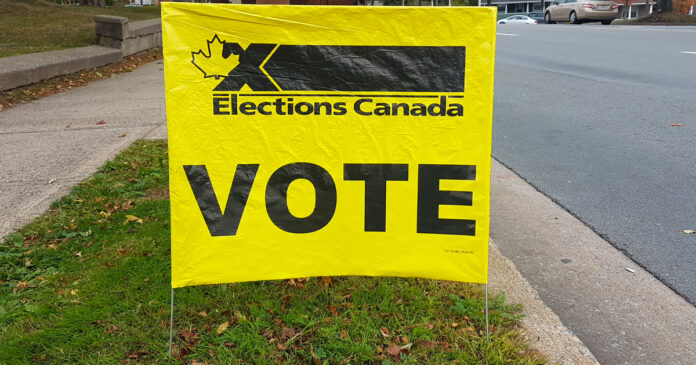A constitutional rights group has sent a letter to Elections Canada and Minister of Public Safety, Democratic Institutions, and Intergovernmental Affairs Dominic Leblanc, emphasizing that Canadians remain the arbiters of truth.
The letter came after Elections Canada recently developed a policy to monitor and counter what it calls “misinformation” and “disinformation.”
Addressed to Stéphane Perrault, Acting CEO of the Chief Electoral Office, The Democracy Fund’s letter outlines several concerns with the Elections Integrity and ElectoFacts website.
On the Election Integrity website, several types of objectionable conduct are outlined.
The conduct highlighted in the letter includes influence campaigns that undermine the electoral process, political parties or candidates using social media to disseminate false information about opponents, and external online efforts targeting diaspora communities to sway their voting decisions.
Elections Canada also purports to monitor media and the internet to identify potential election disruptions, misinformation, and impersonations that may hinder voter participation or cause confusion.
The Democracy Fund noted that Elections Canada has previously contacted social media companies to establish protocols for reporting cases of false information on the voting process and those seeking to impersonate the department.
The civil society organization noted several problems with Election Canada’s approach to monitoring online information.
One of the critiques is that it is not clear that Elections Canada has the legislative authority to report citizens or their online comments or attempt to influence platforms to remove “false information,” said The Democracy Fund in its letter.
“Even if it did, doing so without judicial review and oversight is arguably improper,” wrote senior litigator Mark A. Joseph, who signed the letter.
He added that the legality of prohibiting the publication of “false news” has been adjudicated by Canadian courts, and the relevant Criminal Code provisions have been struck down.
Joseph’s letter said that identifying “misinformation” and “disinformation” is one of the most difficult problems in epistemology and has bedevilled philosophers for millennia, remaining unsolved.
“Until such time as it is resolved, claims to epistemic certainty are unfounded,” he said, adding that there is no evidence that Elections Canada has resolved such a fundamental problem.
The third problem raised by TDF is that the language regarding “false information” is ambiguous, not accounting for comedic, parodistic, or satirical language, resulting in an overbroad and imprecise removal of information.
“It is not clear that Elections Canada could implement any process that would be better at ascertaining truth than citizens using normal human discernment,” said Joseph.
He said that any removal or attempted removal of “false information” would be an exercise in arbitrary or politically-motivated censorship.
“Worse still, in our experience, punishment for contravening speech laws is typically inflected upon minority communities, vulnerable groups, and political dissidents: those with privilege avoid sanction,” he wrote in the letter.
TDF concluded its letter by saying that any attempts to remove “false information” will ultimately erode civil liberties and democratic engagement. Limiting access to a range of moral and political ideas, regardless of accuracy, hinders citizens’ ability to engage with multifaceted debates, undermining their ability to think critically.
“We would respectfully recommend that Elections Canada restrict its conduct to publishing factual information about elections and the electoral process. It is safer and more practicable for the citizens of Canada to remain the arbiters of truth.”
In a statement to True North, Elections Canada said that Section 18.1 of the Canada Elections Act stipulates that the Chief Electoral Officer may provide the public with information relating to Canada’s electoral process and the democratic rights to vote and to be a candidate.
EC said that ElectoFacts is part of its efforts to give Canadians the information they need to participate in federal elections, including some of the questions EC is most frequently asked and some of the most prevalent misconceptions observed.
“We believe free speech is tremendously important. We also have a mandate to provide Canadians with easily accessible and accurate information about the federal electoral process directly from the source, and with verified sources,” said Matthew McKenna, spokesperson for Elections Canada.
He added that the non-partisan agency does not ask for content removal from social media providers unless there is impersonation of Elections Canada, which is illegal under section 481.1 of the Act, or inaccurate information claiming the election is on a different day, as this could disenfranchise electors.
“When we detect inaccurate information, our focus is to make sure accurate information is easily available.”
